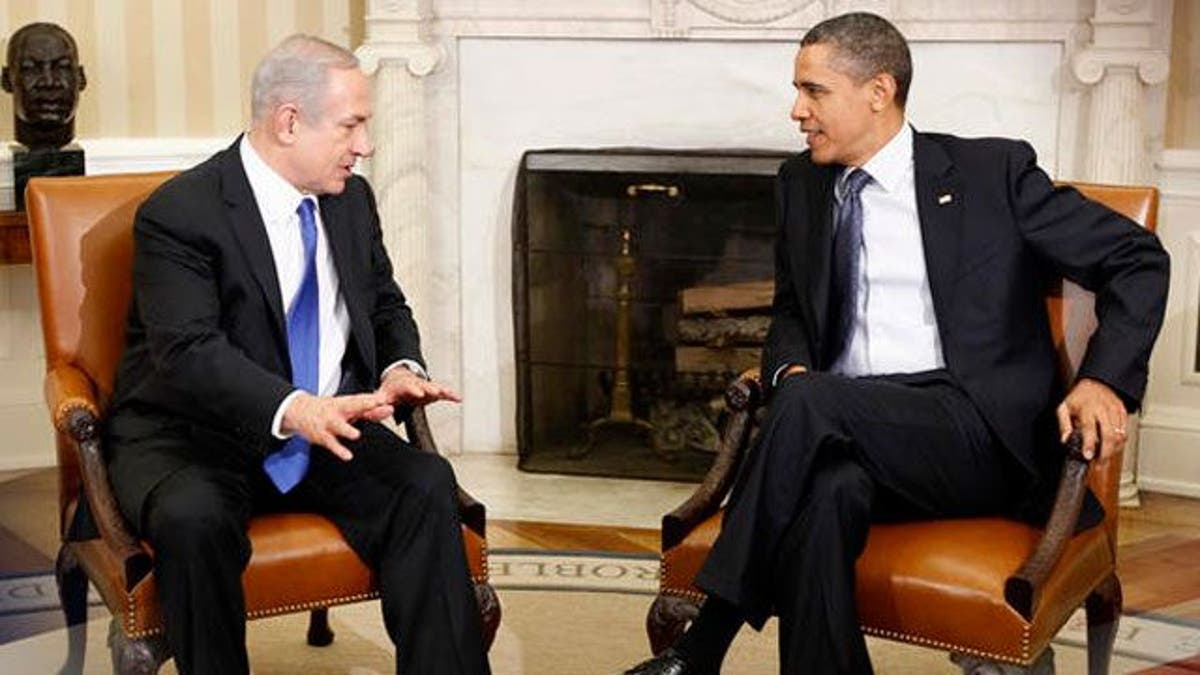
Disputes over the conduct of Israel's recent offensive in the Gaza Strip have left the Obama administration with little influence over Israeli Prime Minister Bejamin Netanyahu's government and kept the U.S. largely on the sidelines as Egypt attempts to negotiate a long-term truce between the Israelis and Palestinians, according to a published report.
According to The Wall Street Journal, White House officials regard Netanyahu and key members of his security Cabinet as "reckless and untrustworthy." In response, the report claims that Israeli officials regard the Obama administration as "weak and naive," a view best expressed by Netanyahu's reported remark earlier this month that the U.S. should not "ever second guess me again" after an earlier cease-fire quickly collapsed amid a flurry of Hamas rockets.
Ties on the diplomatic front deteriorated late last month after Secretary of State John Kerry sent a confidential draft of a proposed cease-fire to Netanyahu's government for feedback. Instead, The Journal reported, Netanyahu sent back no comments and put the proposal to a vote among his security Cabinet. The proposal was also leaked to the Israeli media, angering U.S. officials who saw the move as retribution for Kerry's outreach to Turkey and Qatar, two of Hamas' most prominent backers.
During the current ongoing cease-fire negotiations in Cairo, Egypt has taken over the mediating role customarily held by the U.S., most recently in 2012, when the most recent cease-fire prior to the present fighting was agreed under former Secretary of State Hillary Clinton. A five-day cease-fire reportedly agreed upon Wednesday appeared to be holding as of Thursday morning.
Due to the ongoing friction with the White House and State Department, Israeli officials have reportedly turned to supporters in Congress and the Pentagon. The Journal reports that Israel's Defense Ministry moved last month to secure additional munitions, including mortar shells, through military-to-military channels and without the knowledge of U.S. diplomats or White House officials.
When the White House found out that the weapons request had been approved, it instituted a review procedure that required the Pentagon to consult with the White House and State Department before approving any new Israeli requests.
Similarly, the Journal reported that Israeli officials were lobbying Congress to accelerate a $225 million bill to replenish the country's Iron Dome missile defense system. U.S. officials claimed to the Journal that the Israelis told Pentagon, State Department, and White House officials that they had enough interceptors to see them through the current Gaza operation, and consented when the administration told them the White House would not seek immediate emergency funding. Consequently, U.S. officials told the Israeli counterparts to expect the bill to be approved sometime in the fall.
By contrast, Senator John McCain, R-Ariz., told The Journal that Israeli officials had informed members of Congress that the money was desperately needed because the Iron Dome system was running low on interceptors and the military could not wait for Congress to return from its August recess. In the end, the bill passed Congress, and Obama signed it into law August 4.




